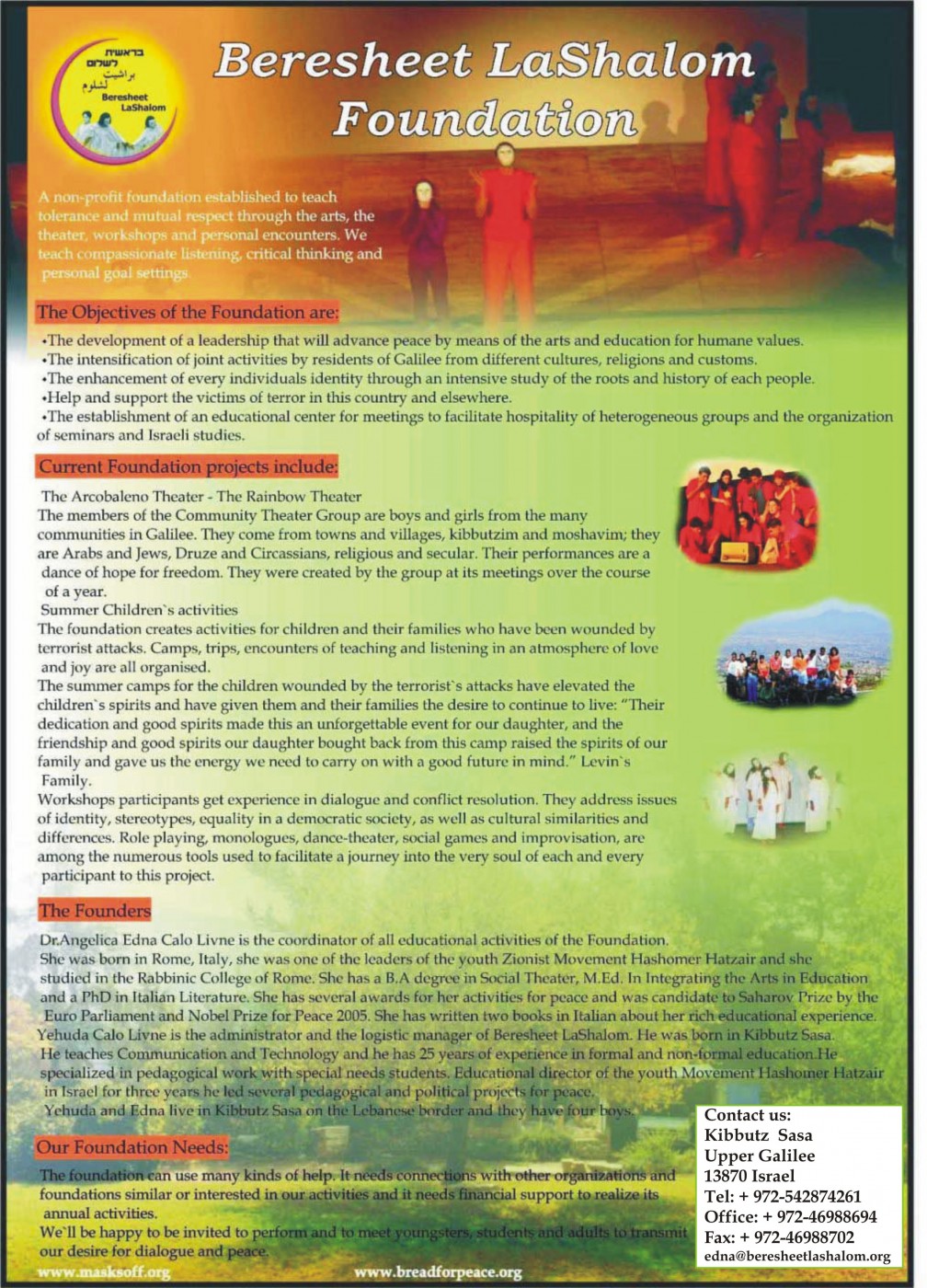The theatrical events brought a breath of joy and enthusiasm. The community theater has expanded and after a series of meetings on the culture, roots and childhood stories of the participants, together with Roi Rashkes, a first-rate playwright, member of Kibbuz Sasa, we created a new show, a funny comedy.
The show “Machshefufot” – WITCHES talks about difference, about welcoming others, about the relationship between parents and children and above all about true love.
In the twenty-first century, witches face difficult challenges.
What happens when the son of a proud witch falls in love with a girl who can’t ride a broomstick or turn a prince into a frog or vice versa? It will probably end in tears… but this time, the witches will make sure it ends in laughter and cheer.
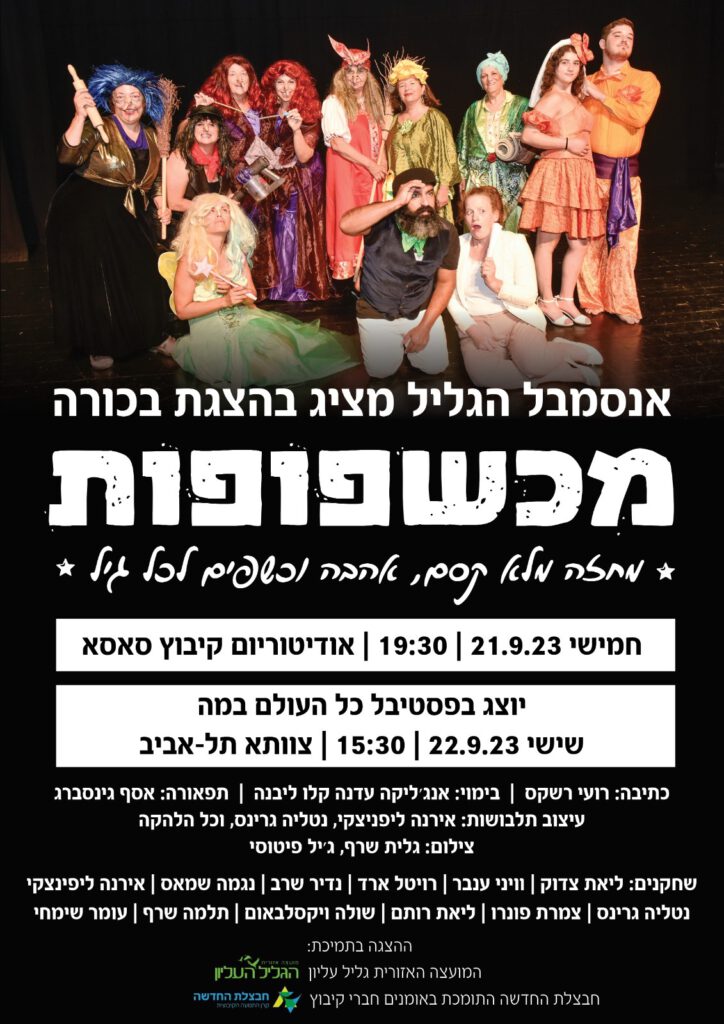
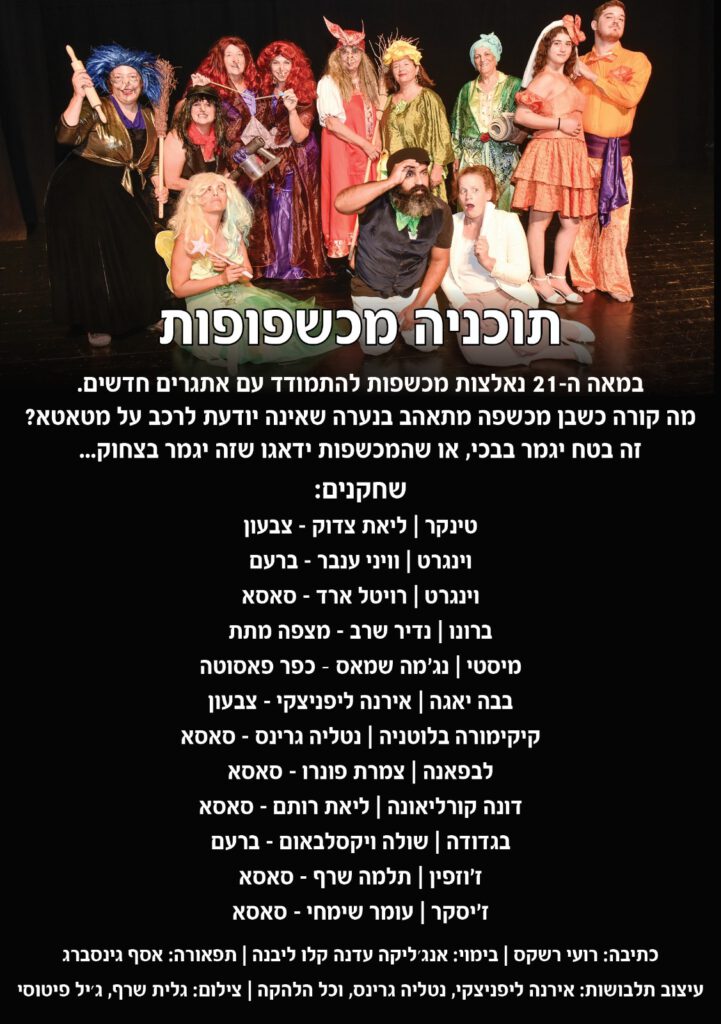
The second-year students in the aid and rehabilitation track in the Department of Education staged the play “Genesis” written and directed by Dr. Angelica Edna Calo Livne, the course lecturer.
The show reminds the viewers that we all have one source, one home, and all you have to do is listen and talk.
The aid and rehabilitation track enriches educators with educational knowledge that combines various tools of expression, creation and thinking and the development of the language of art and creative abilities.
As part of the course, the students participated in a theater and society course – where they learned pedagogical tools from the social theater that aims to bring people together and have a positive impact on the reality of our common lives through the creation of original theater performances.
The show “Beresheet” – Genesis is accompanied by original music by Amir Yacobi, and expresses with movement and emotion the longing for a life of harmony, mutual understanding, and the bringing together of hearts between different people.
“Dear Angelica,
On behalf of the Positive Psychology, Well-being and Entrepreneurship Conference steering committee I am delighted to say that your paper has been accepted for presentation at the inaugural PPWE Conference, Bubaneshawar, India from 27th January – 29th January 2023.
We are very excited that we have a sizeable Israeli contingent and we look forward to meeting our Indian colleagues at the conference.
Warm Regards”
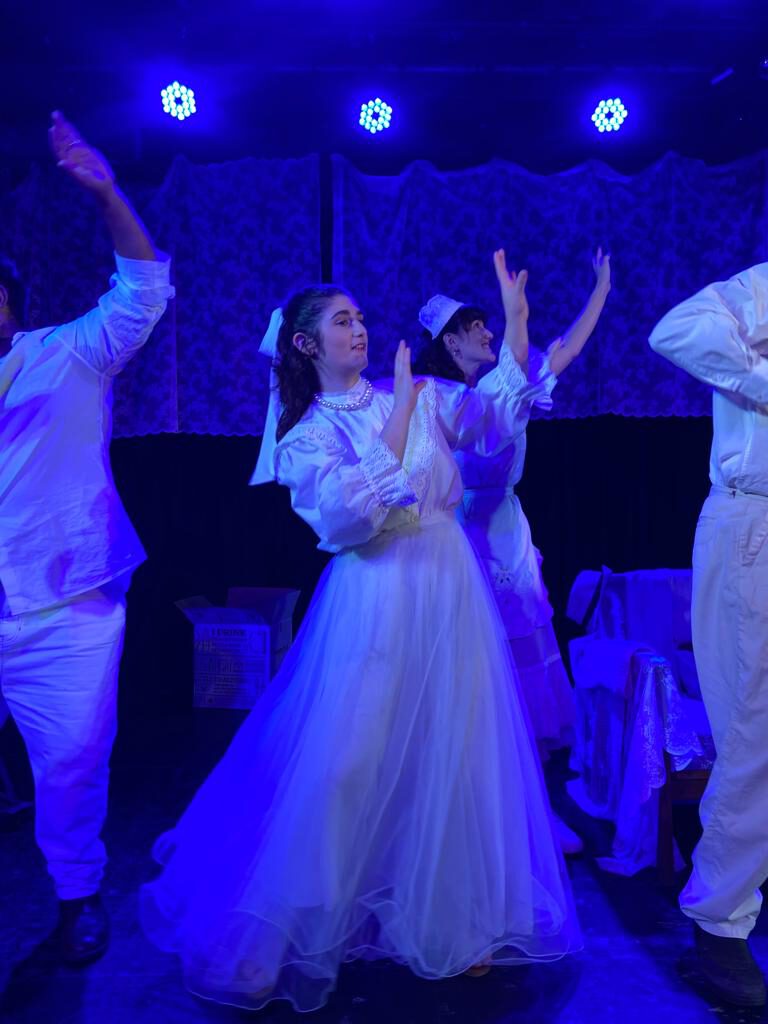
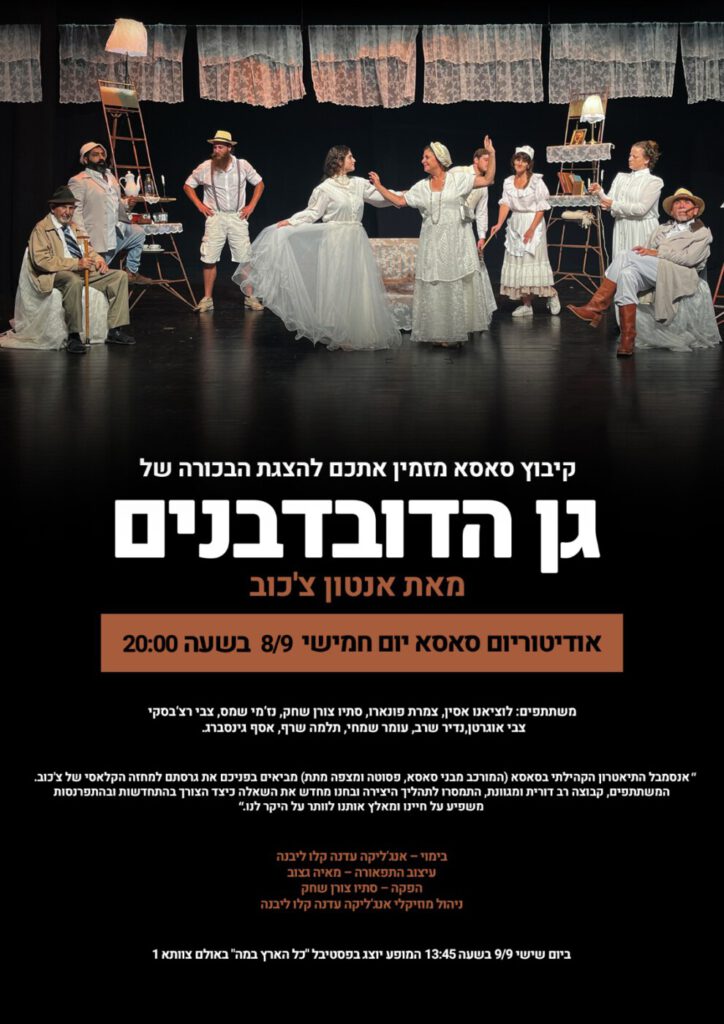
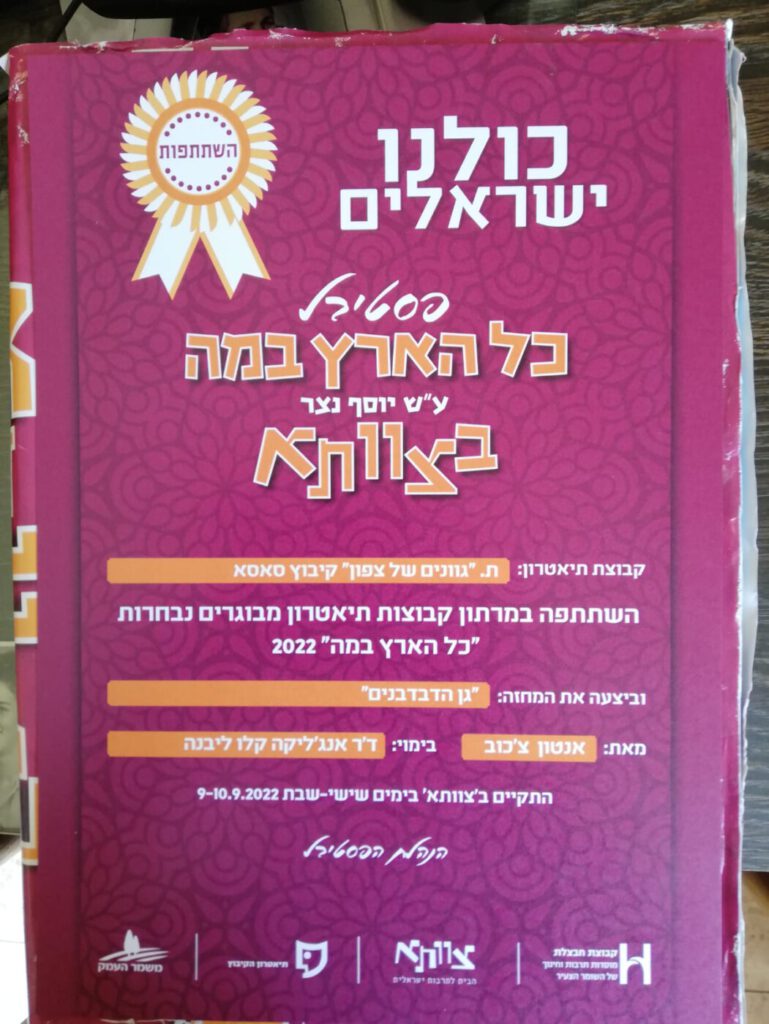
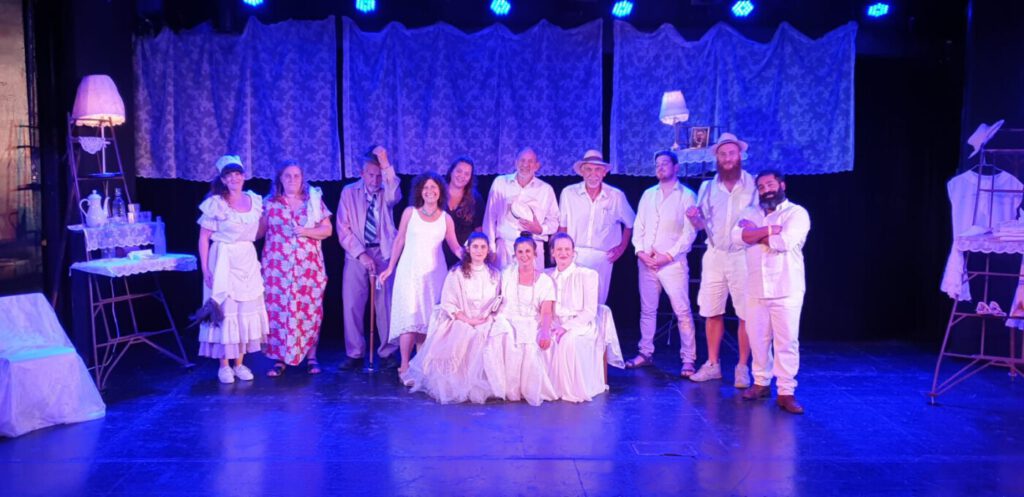
The workshops of Education to dialogue of dr. Angelica Edna Calo Livne, are a big success in all over the world.
Arts have an important role in education, especially in providing pedagogical tools inspired by the performing arts. According to Edwards (2018) dance, theater and music create verbal and non-verbal ways of communication and performing arts experience encourages to develop listening skills and the ability to apply in different situations. Doing theater is a strategy and tool for awareness and empowerment of the participants, and for the formation of a local community that works to promote peace within and outside it and to fight violence reduction. For this strategy to be effective one must build the historical and social connection collectively while respecting the cultures of the participants (Harada, Pedroso, & Regina, 2010). Doing theater, with all the activities inherent in it – improvisation, writing, setting, directing, creating dialogue and monologue – provides the skills needed today for a productive social life: a) contain and collaborate; B)relate in different languages; C) communicate; D) Know how to solve the problems and create the harmony that will lead to a life of peace.
This is expressed in verbal and non-verbal ways, in personal empowerment and “soft” skills development. These soft skills include communication skills, creativity, teamwork, and leadership skills. This workshop will give an approach with new pedagogical tools for a widespread systemic pedagogical change and innovation according to three steps proposed by Fullan (2007): the initiation phase of change, its implementation phase and the institutionalization phase. The tools demonstrate the implementation of a unique educational program that incorporates the performing arts in education.
The workshop is designed to create an atmosphere of release, of joy, of filling energies in a group of people who know or do not know in advance.
Participants will experience an exciting, entertaining, and unexpected journey through movement and sound, theater excercises and simulations.
They will discover an expansion of their personal repertoire and a new face in hidden realms that they did not know before. The creative encounter through the theatrical activity is aimed at building the shared vision, exploring the meaning that the group wants to give change, through three basic aspects: solidarity, collaboration and enjoyment (Marra, 2004).
The workshop is built on working on a physical, emotional and mental level and, in accordance with the Rogerian approach, the person at the center and the role of the educating facilitator is to emphasize his or her talents and uniqueness.

